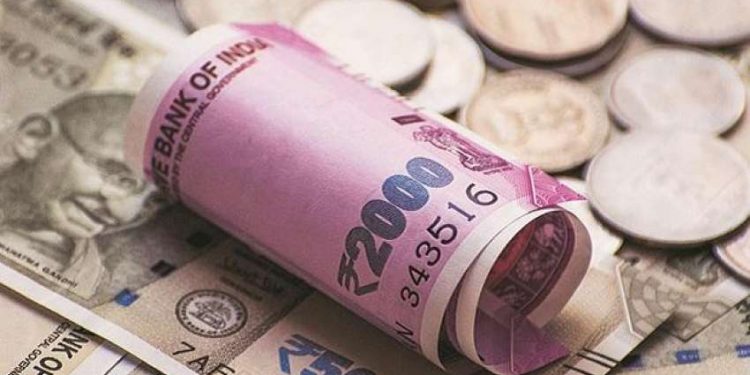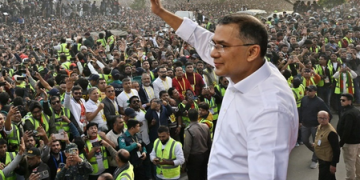Bharat Jhunjhunwala
The Reserve Bank of India (RBI) is printing notes and the government is borrowing that money to meet the shortfall in its revenues due to the pandemic. While this could be a justifiable response to the present crisis, there is more to it.
The three parts of the government’s economic policy are fiscal, monetary and debt. Technically, debt is considered part of monetary policy, but for our discussion, we shall consider it separately. The fiscal policy entails the government collecting taxes and using that money to make the required expenditures. The monetary policy involves the RBI printing notes, supplying them to the banks, the banks buying bonds sold by the government, and the government getting that money.
The debt policy involves the government borrowing directly from domestic investors or foreign institutions like the International Monetary Fund. The government sells bonds and borrows money both in the monetary and debt policies; but, in the monetary policy, it is linked to the printing of notes by the RBI while in debt policy there is no such linkage.
The burden falls on the people immediately if the fiscal approach is adopted. If, for example, the government increases the rate of GST from 18 per cent to 24 per cent, you and me—the consumers—will have to right away pay more for the mobile phone that we buy. In comparison the benefits from the expenditures can accrue today or in future. If the government uses the money to increase expenditures on MNREGA, for providing food subsidies or for providing assistance to small businesses to pay the employer’s share of the provident fund, then the benefits will accrue immediately. The money will enter the pockets of the people here and now. On the other hand, if the same money is used to make bullet train, national waterway or sending a space mission to Mars, then the benefit will accrue after 3, 5 or 10 years because it will take time for such projects to be implemented. Therefore, under fiscal policy, the burden is borne immediately while the benefits accrue in part in the present; and in part in the future depending upon the nature of the expenditures. For this reason, we are today reaping the benefits of the investments made by earlier generations in Indian Space Research Organisation, national highways, IITs and such projects.
The burden of monetary policy of the RBI printing notes falls in the future. Let us say there is currency of `100 crore in circulation in the economy and there are goods of `100 crore available for purchase in the economy. Now, let us say, the Reserve Bank printed an additional `10 crore of notes and the government got that money through the commercial banks. Now, the goods available in the market are of the same value as previously, namely `100 crore, but the notes in circulation have increased to `110 crore.
Naturally, a pen that was previously selling for `10 would now be sold for `11 because more number of notes are chasing the same amount of goods. However, it takes some time for the increase in price to take place. The money will be borrowed by the government, and an allocation will be made to, say, the Surface Transport Ministry. The ministry will call for tenders and issue them, the contractor will build the highway and raise the bill and the money will enter the economy at that time. Therefore, the burden of monetary policy would fall in the future; while the benefits will accrue either at present if the money is spent on MNREGA or accrue in the future if the money is spent on making highways.
The burden of the debt policy also falls in the future. The interest paid on the money borrowed today is paid in the future just as a taxi owner borrows money today, buys the taxi and pays the interest on the loan later. Likewise, if the government borrows `10 crore today, the interest of `1 crore on the loan would have to be paid at the end of the year or after the moratorium. The commercial banks regularly provide a period of a few years before the interest payments are made. The International Monetary Fund and World Bank do the same. The burden of debt therefore falls in the future but the benefits accrue at present or in the future depending upon whether the money is used to pay for MNREGA or to make highways.
It is clear that the fiscal policy involves imposition of the burden on the people at present, while the burden of the monetary and fiscal policies falls in the future. The benefits, in all three cases, accrue at present or in the future depending upon the nature of expenditures. Let us assume for a moment, that the expenditures are made such that 50 per cent benefits accrue at present and 50 per cent accrue in the future. If these expenditures are made with fiscal policy, then 100 per cent burden falls in the present while 50 per cent benefits accrue in the future. Thus, this leads to the transfer of present wealth to future as was done, say, by the establishment of the Indian Space Research Organisation by past generations while the benefits are accruing to us. In contrast, if these expenditures are made with monetary or debt policy, then 100 per cent burden falls in the future while 50 per cent benefits accrue in the present. Thus, this leads to transfer of wealth from future to present as was done, say, by the government borrowing from the International Monetary Fund in the 1990s.
This is the reason that the government likes monetary policy. The politicians can reap the benefits of providing subsidised food grains to the people today while the burden will fall on the future generations. On the other hand, following fiscal policy involves bearing the burden today for the benefit of future generations like the head of the family investing in the education of the children.
The second aspect is that monetary policy evades scrutiny. The fiscal policy immediately leads to people asking why they have to pay higher tax. They want answers. They try to scrutinise the corruption and waste in the government expenditures. They want the government to put its own house in order before imposing more taxes. The debt policy leads to lenders scrutinising the finances of the government such as is done by the rating agencies.
Thus, if the government wants to sell bonds on the international money market, the lenders ask questions about the high salaries paid to government servants. But monetary policy of printing notes by the RBI and borrowing by the government involves no scrutiny whatsoever. No wonder, the government likes it. Whatever the costs of the pandemic, we must bear them ourselves and not encroach upon the welfare of our future generations. We should avoid monetary and debt; and follow fiscal policy.
The writer is a former professor of IIM, Bangalore.






































